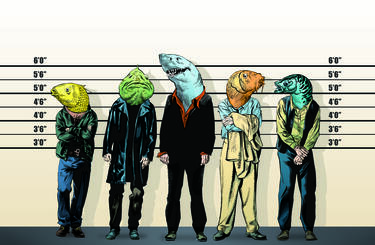
Fish Fraud: How the Marine Stewardship Council tackles unregulated fishing

In the early 1990s the impact of overfishing on the marine environment and on seafood supplies was reaching a critical point. This year the Marine Stewardship Council is celebrating its 20th anniversary and the picture is looking far healthier. In an extract from June's Quality World magazine, Dina Patel speaks to supply chain standards director Michael Platt and manager Jaco Barendse to discover how they are leading the sustainable seafood movement.
In 1992 the Newfoundland Grand Banks cod fishery in Canada collapsed and over 35,000 fishers and plant workers lost their jobs. The area, once a productive fishing ground, was ruined by years of overfishing and the poor management of fisheries. Three years later, representatives of the World Wide Fund for Nature (WWF) and Unilever met to discuss what they could do to curb the impact of overfishing. It was agreed that an organisation was needed, independent of WWF and Unilever, to deliver a programme for assessing and certifying sustainable fisheries, and labelling products from those fisheries.
The Marine Stewardship Council (MSC) was launched in 1997, an international non-profit organisation established to address the problem of unsustainable fishing and safeguard seafood supplies for the future. Third-party certification bodies assess fisheries against the standards created by the MSC, which helps to contribute to the health of the world’s oceans. The MSC has created the most widely recognised certification scheme for sustainable seafood and today 12 per cent of global marine catch is certified to the MSC Fisheries Standard.
Chain of Custody
Michael Platt, supply chain standards director at the MSC, started his career 30 years ago in the seafood sector, working as an auditor to develop standards and assessing organisations against them to ensure quality assurance.
Now, Platt oversees the work of the MSC’s supply chain standards team and has recently developed a Chain of Custody standard which provides assurance in the supply chain by confirming that the seafood has been sourced from a sustainable fishery. The team is based in London but they also have colleagues working in China, Singapore and Washington DC. “We are able to support our certification assessment bodies globally and also support our clients if they have any queries about the standards,” Platt tells Quality World magazine (June 2017 edition).
Platt’s team makes sure that its Chain of Custody programme is fit for purpose by looking at ways to improve the level of assurance they can give to the supply chain. The name of the programme comes from a police term referring to when evidence has been placed into custody. “In the same way the police wouldn’t want the evidence to be substituted with something else, the MSC doesn’t want seafood to be substituted with a different species,” Platt says. The team has developed the standard to look at the traceability and stock movements within the supply chain, from the fishery to the end user: the consumer.
The standard ensures assurance because once a client receives a Chain of Custody certificate it is clear to everyone in the supply chain that it has the systems in place to keep certified MSC products segregated from non-certified MSC products. “If there are instances where MSC products are not segregated from non-certified MSC products we will then instigate a full investigation to identify the lapses in assurance. This will be undertaken by the conformity assessment bodies (CABs),” Platt says.
“We want customers to be able to prove at any point in the supply chain that the fish is from a certified source,” Platt adds. When it comes to creating standards, the MSC engages in consultations with numerous stakeholders before the standard is released for public consultation. After public consultation, the standard is then put through a series of tests, before being agreed by the technical advisory board, at which point a new version of the standard will be issued. The MSC reviews its standards every three years.
Read the full article
Log in to the Members' Area to access the full article in our June edition of Quality World
Quality World

Get the latest news, interviews and features on quality in our industry leading magazine.